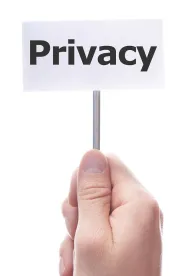The FCC has issued a Report and Order and Further Notice of Proposed Rulemaking (Order) adopting new rules to allow voice service providers to proactively block calls from certain numbers that are suspected to be fraudulent. The November 16 Order seeks to prevent fraud or identity theft that often accompanies calls which “spoof” or manipulate Caller ID information. The new rules expressly authorize voice service providers to block robocalls that appear to be from telephone numbers that do not or cannot make outgoing calls, without running afoul of the FCC’s call completion rules.
The new rules apply to four types of calls: invalid numbers (such as those with fictional area codes); unassigned numbers; numbers assigned to a provider but not in use; and valid numbers that the subscriber has placed on a Do-Not-Originate (DNO) list. The DNO list prevents spoofing by blocking calls purporting to be from the legitimate numbers. Commissioner Rosenworcel, providing the lone point of dissent, noted that the new rules do not prohibit carriers from charging consumers for the call blocking services.
The FCC “strongly encourage[s]” providers to cooperatively share information about numbers that subscribers have requested to be blocked; however the FCC declined to prescribe a sharing mechanism and has not mandated that providers proactively block calls. The FCC made clear that a provider that blocks calls that do not fall within one of the four specific types of calls will be liable for violating Section 201(b) of the Communications Act and associated regulations, which generally prohibit call blocking as an unjust and unreasonable practice. The FCC’s new rules do not extend to text messages and prohibit the blocking of emergency calls.
The Notice of Proposed Rulemaking requests input in two specific areas. First, the FCC seeks comment on the optimal methods to rectify erroneously blocked calls, such as a formal “challenge” process with dedicated timeframes for correction. The Order only encourages companies to adopt procedures to easily identify and fix blocking errors—it does not mandate compliance with a particular mechanism. Second, the FCC seeks comment on ways to measure the effectiveness of its efforts to regulate robocalling. In particular, the FCC is interested to know whether it should institute reporting requirements and, if so, whether that reporting should include a measure of false positives blocked under the new rules. The FCC also invites comment on the benefits and costs of such requirements. Public comments may be submitted through January 23, 2018.



 />i
/>i

